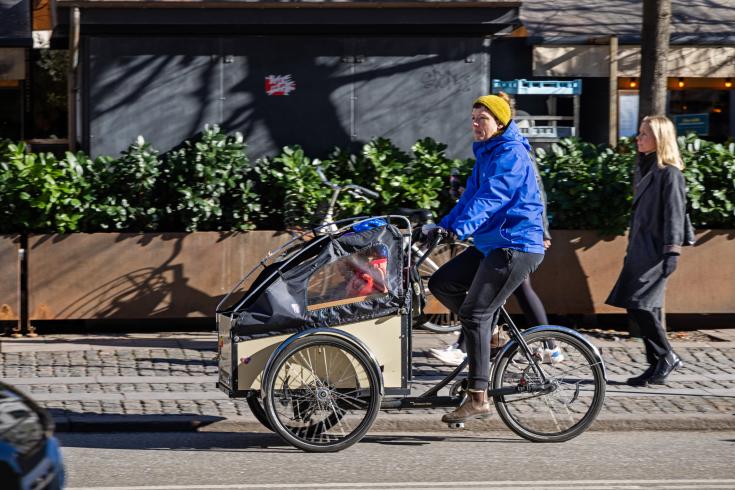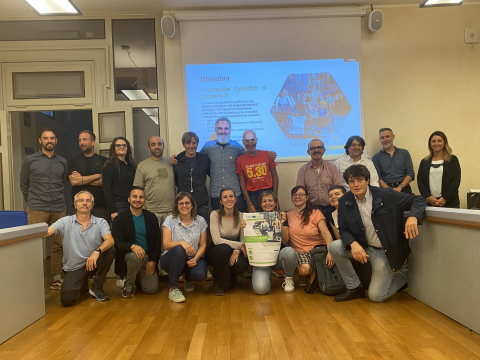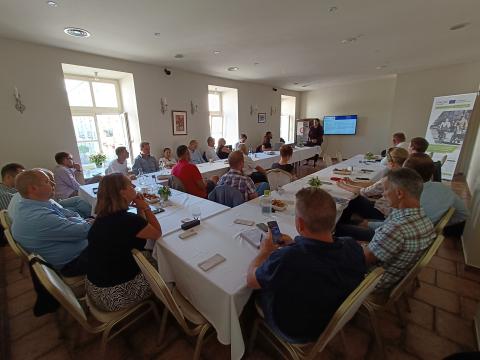Introducing CycleRight's aim, partners and first activities

As a low-carbon and sustainable mode of transport, cycling has the potential to play a key role in improving urban and regional mobility, from reducing transport emissions and road accidents to making public spaces safer and more accessible.
In recent years, cycling has also surged in popularity, accelerated by increased European investment. However, there is still much to learn about developing good cycling infrastructure and many questions to address. For example, how can we design cycling infrastructure that meets the needs of people with disabilities and other vulnerable social groups? And how can cycling be integrated into climate-resilient urban planning?
CycleRight seeks to tackle these challenges by drawing on the experience of eight different European regions, the expertise of eleven project partners and the involvement of even more regional stakeholders. Throughout the project, partners will share good practices and knowledge on climate-resilient, accessible and safe cycling infrastructure to improve a set of policy instruments targeted at sustainable urban mobility. This will allow more efficient usage of the €3.2 billion planned for cycling development in the 2021–2027 period of the EU Cohesion Policy. The learnings will also be fed into a Climate Resilient and Inclusive Cycling Planning Guide.
Kick-off meeting June 2024: Meet the partners
The CycleRight Online Kick-Off Meeting provided the opportunity for the partners to connect and outline the project’s first-semester objectives. Hosted by the lead partner, West Pannon Nonprofit Ltd., the meeting began with a welcome speech by Tibor Polgár, director for strategy, followed by partner introductions and presentations on their targeted cycling-related policy instruments.
Explore the project partners here and learn more about their targeted policy instruments here.
After the partner introductions, project manager Zsombor Aradszki detailed the work plan, and Tibor Polgár presented a methodology for assessing partners' learning needs through SWOT analysis and collecting good practices. Then, Zsombor Aradszki outlined the agenda and structure for upcoming stakeholder group meetings to collect the first input for the territorial analysis. He concluded with an overview of management, reporting and budgeting basics and the use of the Interreg Europe Portal. Finally, the communications coordinator presented the communication goals, guidelines and activities planned for the project.
With this information, partners were ready to start organising their stakeholder group meetings and preparing for the first study visits.

Territorial Analyses and Stakeholder Group meetings
In the Territorial Analyses, partners present their regions’ background and current state of cycling, including the goals reached between 2014 and 2020 and plans for 2021-2027. The analysis forms the basis for identifying and showcasing good practices. Partners organised stakeholder group meetings to gather insights on the territorial analysis and invited main regional/local level stakeholders to contribute.
A great variety of stakeholders participated. For example, RDA South-West Oltenia engaged authorities involved in mobility plans and the endorsement of plans and projects (e.g., police), academics, and cycling advocates. The Metropolitan City of Bologna brought together associations and local governments to combine diverse skills and experiences. In Hungary, the stakeholders invited by West Pannon Nonprofit Ltd. included county governments responsible for planning, road maintenance managers, cycling NGOs, and tour operators.
The European Cyclists’ Federation also contributed to the Territorial Analysis of all the project partners by setting up a copy of ECF's Cycling Infrastructure Tracker adapted to provide standardised data in each partner’s area of competence.

Next up: Study visits
With the Stakeholder Group Meetings behind us, partners have made good progress on the Territorial Analysis and collected initial input on the policy instruments under review. Partners will now start preparing their study visit, drawing on these insights and focusing on the topics and projects they find valuable to share and discuss with other project partners. The first study visit is just around the corner. It will take place in Sopron, Hungary, and is hosted by lead partner West Pannon Regional and Economic Development Public Nonprofit Ltd.